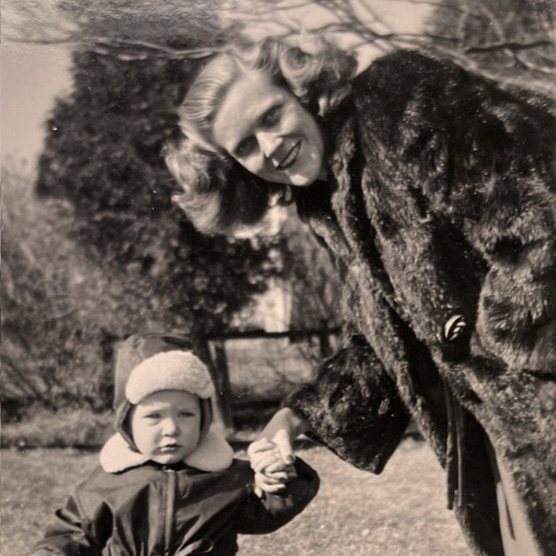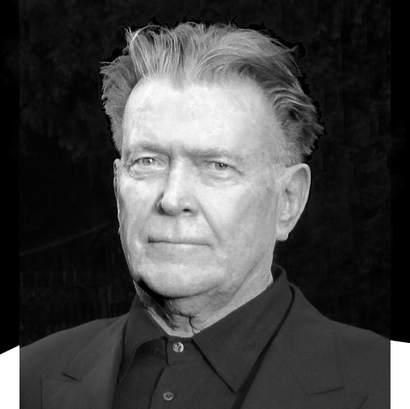Mother’s Day meant little to my mother, Irma. She went along, thanking me for whatever Mother’s Day gift I made for her at school and then always telling me a story about some wonderful time we had had together when I was younger—such as when she had taken me to a carnival at Park Point in Duluth, and there were pony rides, and she put me on a pony, and the pony started bucking, and I just laughed and laughed.
A small memory, perhaps, but I now think that what passes between a mother and a son is not defined by her love in that moment but later, by the echoes of her motherhood. What did she really do? Her touch. Her courage. No surprise, then, that the more I moved around, got out in the world, and had sons of my own, the more I realized how much my mother, Irma, was still with me.
Mothers and sons are one thing, and so are mothers and daughters, but single mothers and fatherless sons are something else entirely. Such sons tend toward violence, for one thing, meanness just for fun, and they have an especially hard time if there is not enough money—stress that neuroscience now tells us can alter the frontal cortex of a little boy before he is five years old and change the way he thinks.
When I was that age, my mother was driving just the two of us across the country in a 1950 Ford convertible with the top down. Irma liked to sing along to “Que Sera, Sera” by Doris Day on the radio. She said it was her favorite song because it was pretty and true: “Whatever will be, will be … ” So there were no guarantees, but we were hopeful. Irma would teach school, and we would have a new life in California without my dead father, a navy pilot who had gone down in 1944.
Mothers and sons are one thing, and so are mothers and daughters, but single mothers and fatherless sons are something else entirely.
Young widows like Irma carried a huge burden. Most had been married only a short time when their husbands shipped out. Usually less than a year after the honeymoon, sometimes less than a month, even. Marriages so short they had to be good. Then that knock on the door, or a telegram. And then what? I imagined Irma answering the door of a small officer’s-quarters bungalow on the base in Norfolk, Virginia. Then the lows that came with the end of the war—loneliness, depression, anxiety, making ends meet—amplified by everyone else celebrating while they mourned alone with a young child and a one-time payment of $12,000.
Many facts and numbers came out of the war, but not about widowed mothers and their children. Government estimates suggested that some 183,000 American children lost their fathers to their active service overseas. The oldest of us often had “flashbulb memories” of Daddy’s last hug, or of waving good-bye. The youngest had nothing and depended entirely on family, and particularly on their mothers, who, according to William Tuttle in Daddy’s Gone to War, were advised by psychologists, “If you can take it, your children can.”

When it came to fatherless sons, the idea that a boy needed a man was postwar subtext. Stepfathers were good and would fill the emotional void left by the father’s death. In my case Irma’s search for a new life brought us an abusive new husband and stepfather. Everything he did or said was a threat, terrorizing us, bullying, lying about his real-estate deals, ridiculing everyone who did not look like him. What kind of a man grabs his 10-year-old stepson by the balls as a joke? But Irma persevered, raising me into my teens under his dark cloud, teaching me about the natural world: the trees and birds of the fertile Santa Clara (now Silicon) Valley. I could name them all today.
Theoretically, the absence of my father would have turned me to look to other men—coaches, teachers, older guys—to show me how to be a man. But I had Irma. When I tore open my arm falling out of a cherry tree, hooking the inside of my elbow on a dead branch as I fell, she made me look at it. She told me it was hard but if I did not look, I would not remember what I needed to remember, not learn what I needed to learn. The gash was deep and long. We were in an emergency room. I was seven.
After that I was never afraid to look, but I thought of it as being tough—not the knowledge Irma intended for me. So I missed things, but Irma was determined. I would hear the phone ring early in the morning, and she would come to my bed and tell me she was going to substitute-teach again. “Dawn patrol,” Irma would say. “Let’s see what we can see.”
She would drive slowly to my school, and I would watch carefully out the window. Irma said learning how to look was more important than what I saw: men in overalls going to construction jobs, robins pecking lawns for worms, a woman in a slip staring out a picture window. Time would speed up until she dropped me off. Then I would sit on a playground bench and watch the older kids and try to think about what I had seen.
When I was starting a new school in the third grade, Irma drove me there early. Most of the mothers went into the classroom to meet the teacher, but Irma already knew her. I was quiet in the car. Irma asked what I was thinking. After a moment I said carefully that I did not want to make any mistakes. Irma saw that I was afraid of going in alone and told me I would feel better if I thought about who I was. I tried to do exactly that until we pulled up in front of my new school and she reached across to open the passenger door.
Some 183,000 American children lost their fathers to their active service overseas. The oldest of us often had “flashbulb memories” of Daddy’s last hug, or of waving good-bye. The youngest had nothing.
“You can do this,” she said. “We both know you can.”
I do not think Irma ever lied to me. That was one of our deals. I remember the exact moment. We were leaving Duluth for California and had just gotten into the Ford. Before she turned the key in the ignition, Irma smiled at me and said that the most important thing from then on was that we always tell each other the truth, no matter what. I did not think I had ever lied and probably barely comprehended what lying was, but I understood. I could not have known then that Irma would enforce it over and over in such subtle ways that it would live in my little-boy head and through adolescence until I was out of her house.
Nothing would have scared me more than seeing Irma unsure and girlish, frightened, and she never showed me any of that—no fear except of the loss of memory, of what was not there anymore. California all those years ago. So many birds. The trees. Sending me off by simply letting me go.
When I left for Berkeley, Irma walked me to her old Ford, now mine, and told me not to worry about her anymore. That seemed a funny word, and it might have resonated if I had not been so struck by how pretty Irma was and how strong she seemed. Irma smiled. She must have known there would be changes between us, even changes in the way we perceived each other, and that would be fine. In the end, neither of us wanted to be trapped in a life we did not choose, if we ever chose at all. That was our solidarity, and she was not done with me.
When I had sons of my own, I remembered Irma telling me often that I should go my own way, whichever way that was. It was like getting something extra when I was a boy, and my sons liked it even more. “He goes his own way,” I would say about one or the other of them, and they would both beam. Sometimes they would say it about each other. It was making them best friends as well as brothers. That is what I wanted for them.
It was all in the specifics: a bee sting in Texas, or, in California, that tiny scarlet hourglass on a black widow in Willow Glen, so many starlings flocking over cherry orchards in Campbell you could not see the sky. I wanted my sons to see the details, to find them in their own lives, and to look at the hard things too—a torn arm in an emergency room. They would fall out of trees. Irma’s wisdom.
Most sons pull away as they grow into manhood, but Irma and I carried on. She had never judged, and that gave me a freedom I did not appreciate until my own sons encroached upon it, at which point I began telling them their first responsibility was to make their lives as interesting as they possibly could. Throw themselves into their lives. They were just in pre-school, but I meant it. When you live through things, things change you, but you have to keep your life for yourself and live in it and make it work. That had been Irma’s message, although she never spelled it out in words. She had simply taught me to see the trees and the birds.
Terry McDonell is a co-founder of Literary Hub. His memoir Irma: The Education of a Mother’s Son was published last spring by Harper. He is also the author of The Accidental Life: An Editor’s Notes on Writing and Writers and the novel California Bloodstock


